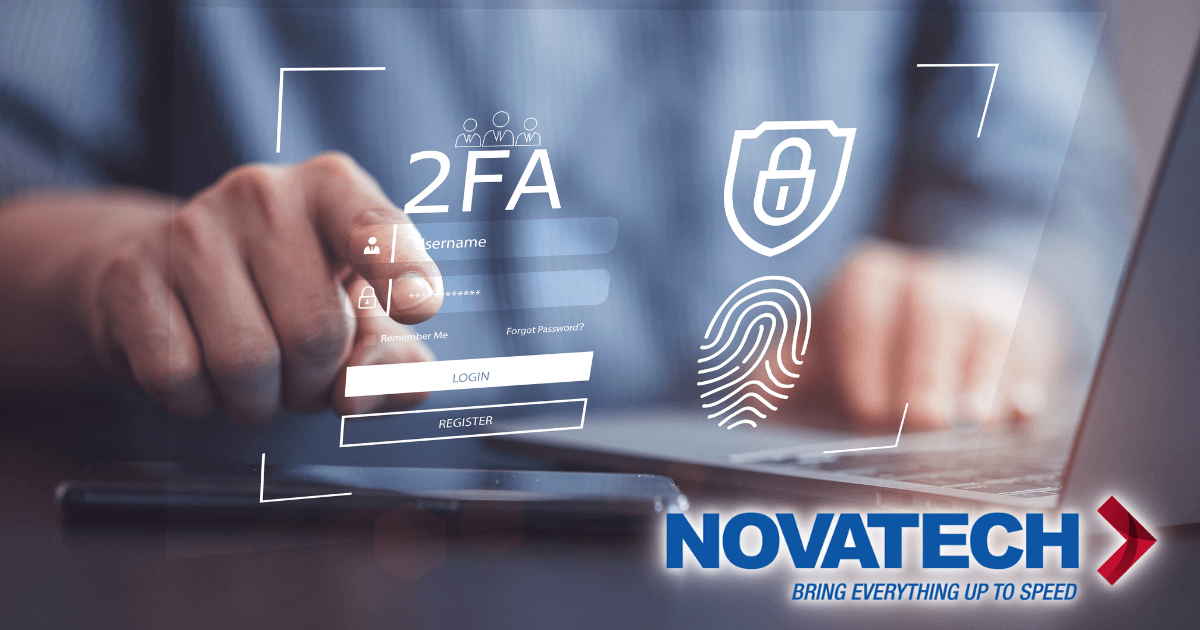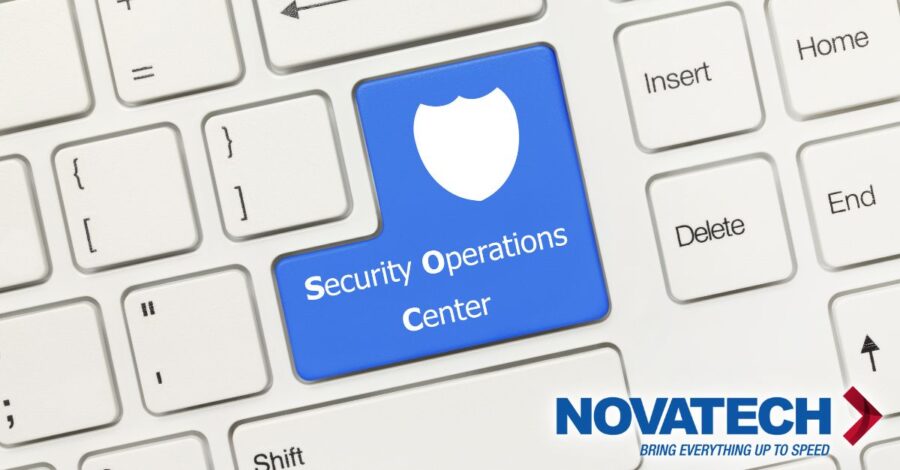The Growing Need for Two-Factor Authentication in Businesses
6 min read

In the ever-evolving world of technology, businesses are continuously exposed to new and sophisticated cyber threats. Recent studies have shown a significant rise in security breaches, emphasizing the importance of stronger security measures to protect sensitive data. One effective method of reinforcing your organization’s security is the implementation of two-factor authentication (2FA).
In this blog post, we will explore the growing need for 2FA in businesses, discussing current statistics for 2023, the benefits of implementing 2FA, and how this additional layer of security can be a game-changer for your organization’s security posture.
Why Two-Factor Authentication is Essential
According to the 2023 Cybersecurity Threat Report, the average cost of a data breach has risen to $4.24 million per incident, a 10% increase compared to 2021 [1]. In addition, 81% of data breaches are caused by weak or stolen passwords [2]. This highlights the growing importance of implementing 2FA as an additional layer of security.
Two-factor authentication adds an extra layer of protection by requiring users to provide two separate forms of identification before granting access to a system. This can include something the user knows (e.g., a password), something the user has (e.g., a physical token), and/or something the user is (e.g., a biometric identifier like a fingerprint).
The Benefits of Two-Factor Authentication
Enhanced Security: 2FA significantly reduces the likelihood of unauthorized access by requiring a second form of authentication. Even if an attacker acquires a user’s password, they still need the second factor to gain access.
Compliance Requirements: Many industries have regulations that mandate the use of 2FA, such as the Payment Card Industry Data Security Standard (PCI DSS) and the Health Insurance Portability and Accountability Act (HIPAA). Implementing 2FA helps organizations maintain compliance with these regulations, avoiding hefty fines and potential reputational damage.
Improved User Confidence: Implementing 2FA can boost user confidence in your organization’s commitment to safeguarding their data. A survey conducted by Microsoft revealed that 94% of consumers would trust a company more if it uses 2FA to protect their accounts [3].
Protection Against Phishing and Social Engineering: 2FA can deter cybercriminals from using phishing or social engineering tactics to trick employees into revealing their login credentials. In 2023, phishing attacks accounted for 32% of security incidents, making it the most prevalent type of cyberattack [2].
Choosing the Right Two-Factor Authentication Solution
When considering the implementation of 2FA, it’s essential to choose a solution that meets your organization’s needs. Key factors to consider include:
- Ease of Deployment: A 2FA solution should be quick and straightforward to set up, with minimal disruption to your operations.
- Wide Range of Supported Devices: The solution should support a variety of devices, including smartphones, tablets, and hardware tokens, allowing users to choose the most convenient authentication method.
- Flexible Integrations: A 2FA solution should be compatible with numerous applications, such as VPNs, email services, and cloud-based platforms, to ensure seamless integration with your existing infrastructure.
- Scalability: The chosen solution should be able to grow with your organization, accommodating changes in size and complexity.
- User Experience: A good 2FA solution should provide a smooth and user-friendly experience, minimizing any potential resistance from employees who may be initially hesitant to adopt new security measures.
- Cost-effectiveness: While it’s important to invest in a robust security solution, organizations must also consider their budget. Choose a 2FA solution that offers the right balance of features and cost-effectiveness to maximize the return on investment.
Two-Factor Authentication Methods
- There are several methods of 2FA to choose from, and each offers a unique combination of convenience and security:
- DUO: DUO is a popular 2FA solution that combines user-friendly mobile authentication with robust security features. It supports a wide range of authentication methods, including push notifications, SMS, and phone calls, making it a versatile choice for many organizations.
- SMS Verification: This method sends a one-time code to the user’s registered mobile number. While it’s a popular and convenient option, it may be susceptible to interception or SIM swap attacks.
- Authenticator Apps: These apps generate one-time codes on the user’s device, eliminating the risk of interception. Some popular authenticator apps include Google Authenticator, Microsoft Authenticator, and Authy.
- Hardware Tokens: These physical devices generate one-time codes or use technologies like NFC (Near Field Communication) to confirm user identity. Hardware tokens, such as YubiKey, can be more secure than other methods, but may come with higher costs and logistical challenges.
- Biometric Authentication: This method uses unique physical attributes like fingerprints or facial recognition to confirm user identity. While biometric authentication can be highly secure, it may require specialized hardware and software.
How Novatech Can Help
Novatech’s Business Technology Advisors and IT Experts are here to help identify the best 2FA solution for your organization’s unique needs and budget. With years of experience in the industry, our team is well-equipped to guide you through the process of selecting, implementing, and maintaining a two-factor authentication system that seamlessly integrates with your existing infrastructure.
Our team at Novatech will:
- Conduct a thorough assessment of your organization’s security requirements, considering factors such as regulatory compliance, user experience, and scalability.
- Recommend a tailored 2FA solution based on our assessment, ensuring that it aligns with your organization’s needs and budget.
- Provide expert assistance with the deployment and integration of the chosen 2FA solution, minimizing disruption to your operations and ensuring a smooth transition for your users.
- Offer ongoing support and guidance, including training for your staff, to ensure that your organization continues to benefit from the enhanced security provided by two-factor authentication.
Addressing Common Concerns About Two-Factor Authentication
While the benefits of implementing 2FA in your organization are evident, you may still encounter some concerns or misconceptions about the process. Let’s address some of the most common concerns:
- Complexity: Some organizations worry that implementing 2FA will add complexity to their systems, creating challenges for users and IT staff alike. However, the right 2FA solution can be easy to deploy and manage, while still providing a user-friendly experience. Partnering with experts like Novatech ensures a smooth implementation process that addresses any potential challenges.
- Impact on Productivity: There may be concerns that 2FA could slow down employees and negatively impact productivity. In reality, the slight time investment required for 2FA is minimal compared to the potential consequences of a data breach. By selecting a convenient 2FA method and providing adequate training, your organization can minimize any impact on productivity.
- Privacy: Some users may have privacy concerns when it comes to using their personal devices, such as smartphones, for 2FA. It’s crucial to address these concerns by establishing clear policies and guidelines for using personal devices in the authentication process, ensuring that users’ privacy is protected.
Creating a Culture of Security
Implementing 2FA is just one part of creating a comprehensive security strategy for your organization. To truly enhance your security posture, it’s essential to cultivate a culture of security awareness among your employees. Consider the following steps to promote security awareness:
- Regular Training: Provide ongoing training for your employees, covering topics such as password best practices, recognizing phishing attempts, and using 2FA.
- Security Policies: Develop and maintain clear, concise security policies that outline your organization’s expectations and requirements for protecting sensitive data.
- Encourage Reporting: Create an environment where employees feel comfortable reporting potential security threats or incidents without fear of repercussions.
- Security Champions: Identify and empower security champions within your organization who can help promote and reinforce security best practices among their colleagues.
By fostering a culture of security awareness, you can complement the technical benefits of 2FA and further protect your organization from cyber threats.
Conclusion
The importance of two-factor authentication in today’s digital landscape cannot be overstated. Implementing 2FA can significantly enhance your organization’s security, protect sensitive data, and help maintain compliance with industry regulations. By addressing common concerns and working with experienced partners like Novatech, your organization can smoothly transition to a more secure authentication process.
Novatech’s Business Technology Advisors and IT Experts are committed to helping you find the ideal 2FA solution for your organization’s unique needs and budget. Our team will guide you through the entire process, from selecting the right solution to deploying and maintaining it. Contact us today at novatech.net to learn more about how we can help secure your organization with two-factor authentication.
Source Links:
[1] IBM Security. (2023). Cost of a Data Breach Report. Retrieved from https://www.ibm.com/security/data-breach
[2] Verizon. (2023). Data Breach Investigations Report. Retrieved from https://www.verizon.com/business/resources/reports/dbir/
[3] Microsoft. (2021). Security Intelligence Report. Retrieved from https://www.microsoft.com/security/blog/2021/05/11/security-intelligence-report-vol-25/


